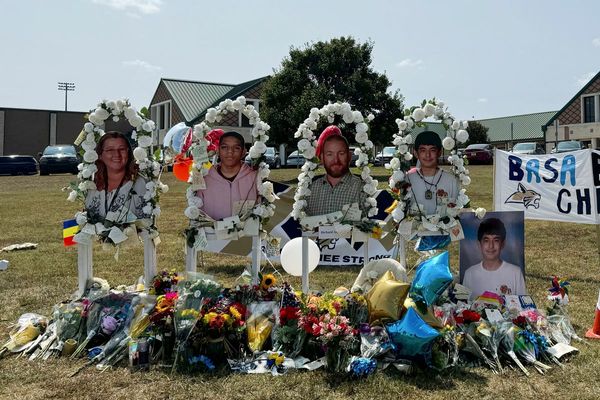External Affairs Minister S. Jaishankar on February 20 reaffirmed defence and trade cooperation with Russia and said that many Western countries used to supply arms to Pakistan and not India, adding that the trend has changed in the past decade.
“In terms of inventory, yes, because many Western countries have long preferred to supply Pakistan and not India. But that has changed in the past ten or fifteen years with the U.S.A., for example, and our new purchases have diversified with the U.S.A., Russia, France and Israel as the main suppliers,” he said.
In an interview with a leading German economic daily Handelsblatt during his visit to the Munich Security Conference in Germany, Mr. Jaishankar highlighted the infrastructural imbalance of supply chains in the world and said that the world’s economic model is unstable and unfair.
Also Read | Blinken and Jaishankar discuss need to ensure freedom of navigation in Red Sea: U.S.
“The world has created an economic model that is unstable and unfair. In the name of globalization, we have seen over-concentration in the world. Production has been shifted to a limited number of countries. The economies of many countries have been hollowed out,” Mr. Jaishankar said.
“Many countries depend on others for very basic things - and we notice this immediately when we have disruptions like COVID, like the climate or the problems in the Red Sea at the moment. The problem is so profound that it’s not so easy to say: “Let’s do these three or four things - and things will be fine again,” he added.
He said further, “The global order is currently facing multiple kinds of stress. Due to shocks like Covid, the war in Ukraine, the war in Gaza, the NATO withdrawal from Afghanistan and disruptive climate events that are happening more and more frequently. That is our challenge. However, it is not just about strengthening the international order, but also about changing this order. Who shapes it and on what basis? The international order must evolve further.”
‘Can’t have a view of Russia identical to Europe’s’
Amid the strengthening relations with Russia, Mr. Jaishankar said that India doesn’t expect Europe to have a New Delhi-centric view of China and Europe should also understand that India won’t move with the European view of Russia.
“My point is: just as I do not expect Europe to have a view of China that is identical to mine, Europe should understand that I cannot have a view of Russia that is identical to the European one. Let us accept that there are natural differences in relationships,” he said.
Mr. Jaishankar highlighted the challenges faced by India to manage its energy supplies after the Russia-Ukraine war.
“Both sides (Russia and Europe) have communicated their positions clearly and have not emphasized their differences. But yes, there are differences. You mentioned the energy issue. When the fighting started in Ukraine, Europe shifted a large part of its energy procurement to the Middle East - until then the main supplier for India and other countries. What should we have done?” Mr. Jaishankar said, on being asked if Europe’s differences with Russia put a strain on India-Europe relations.
“In many cases, our Middle East suppliers gave priority to Europe because Europe paid higher prices. Either we would have had no energy because everything would have gone to them. Or we would have ended up paying a lot more because you were paying more. And in a certain way, we stabilized the energy market that way,” he added.
Also Read | India wants Israel to be mindful of Gaza civilian deaths
The Minister also insisted on mediating talks with Russia and Ukraine to end war in the region and said that India would be happy to help but won’t initiate anything in this direction on its own.
“We (India) have already helped with very specific issues. When Turkey negotiated the corridor through the Black Sea, for example. And we were very supportive of the inspections by the International Atomic Energy Agency, IAEA, of the Zaporizhzhya nuclear power plant. Wherever we can help, we are happy to do so. We are open when we are approached. However, we do not believe that we should initiate anything in this direction on our own,” he said.
India and Russia have maintained a robust strategic partnership, rooted in historical ties and shared interests, over decades. Central to this relationship is extensive defence cooperation, with Russia serving as a major supplier of military equipment to India and both nations engaging in joint military exercises, co-development of advanced military platforms, and technology transfers, according to the Russian news agency.
More recently, energy collaboration has become another strong pillar of bilateral ties. The Kudankulam nuclear power plant (KNPP), India’s largest, is being built in Tamil Nadu with technical assistance provided by Moscow.
Russia’s expertise in nuclear technology has been instrumental in advancing India’s capabilities, fostering a mutually beneficial partnership, according to RT. The two countries have pledged to deepen their nuclear cooperation, recognizing its strategic importance for energy security and technological advancement.
Over the past 18 months, India has emerged as one of the largest importers of Russian oil — a stand New Delhi has had to defend on many occasions from accusations by Western media, and even some political leaders, of funding ‘Russia’s war’ with Ukraine.







